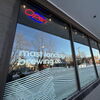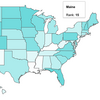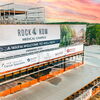Coming home | A young GrowSmart staffer recounts why he chose to return to Maine
“Charting the Course” is written by GrowSmart Maine, a Yarmouth nonprofit that promotes and encourages new ways of thinking about Maine’s future.
The greater Portland metropolitan area, which encompasses most of southern Maine, was just named by Forbes magazine as “America’s Most Livable City.”
The magazine’s methodology looked at crime rates and cultural indices, which Portland traditionally scores well in. But Forbes also examined cost of living, unemployment rates and income growth. Greater Portland scored in the top 10% of the nation’s 379 largest metropolitan areas in the latter two categories, which launched our region past other low-crime and culturally rich cities like Pittsburgh and Cambridge.
All too often, the phrase “quality of life” elicits images of parks and sidewalk cafes, or art galleries and lobster boats. Those things are nice to have, undoubtedly. But for most of us, being able to earn a decent living is the most important determining factor in the quality of our lives.
I know this firsthand from my experience living on the West Coast in the other Portland, a city also renowned for its livability. I spent four years in that city as a student at Reed College, after which, in 2003, I entered the Oregon workforce with a brand new degree in math and economics. At the time, the region was enduring a moderate recession in the wake of the dot-com bust, but I decided to stick around because the city was a fun and attractive place to live, with verdant parks, burgeoning music and arts scenes, and vibrant neighborhoods.
Those perks make for nice chamber of commerce brochures, but I soon learned how difficult it was to enjoy the good life in Oregon while I was working the same mind-numbing lifeguarding job I’d had as a student. I desperately wanted to put my education to use, but whenever a promising job opening appeared, I found myself competing against hundreds of other highly qualified, under-employed people just like me.
Quality needs opportunity
A couple of years later, I moved to Houston, Texas. Generally speaking, Houston is an unattractive city, and for most of the year it’s a sweltering, mosquito-infested outdoor sauna to boot. Houston usually doesn’t come to mind when people talk about quality of life.
But the quality of my life there was much, much better than it was in Oregon. My job search was easy: I had been hired for a rewarding, self-directed job weeks before I moved there. The city’s low unemployment rates and low cost of living meant my friends and I were able to frequently go out and eat at the numerous Vietnamese and Mexican restaurants in my neighborhood (Houston’s opportunities have also cultivated a number of robust and upwardly mobile immigrant communities).
Houstonians also seem friendlier, whether out of innate Southern charm or from the fact that they are less uptight about finding work, and the city’s wealthy philanthropists and laissez-faire, do-what-you-will attitudes help foster a dynamic and welcoming cultural environment.
Both Houston and Portland, Oregon, had their charms, but in the end, their deficiencies sent me packing home to Maine. The truth is that quality of place and economic opportunity together are what quality of life is all about. Maine does a pretty good job of maintaining both, which is why I came back.
Contrary to our fondness for pessimism, Maine’s economy is still getting stronger. Our “Charting Maine’s Future” report in 2006 found that Maine had been attracting new workers and businesses from southern New England and elsewhere. Our economy is diversifying with new industries, and our state’s per-capita income is at a 50-year high relative to the national average. Many of those positive trends are continuing even in the current downturn: According to figures released late last month from the U.S. Bureau of Economic Analysis, Maine’s per-capita income increased 4.1% in 2008, a higher rate of growth than any other New England state.
A stronger economy also contributes to the vitality of our communities and generates new resources with which we can protect our environment — there’s a virtuous cycle between improving our business climate and maintaining our quality of place.
Talented workers and business owners will continue to be attracted to Maine because of our wild landscapes and vibrant communities — the Maine brand. But they’re putting down roots because it’s still possible to find (or create) a rewarding career here.
Preserving the state’s renowned livability and preserving economic opportunity for our workers and entrepreneurs are two sides of the same coin, and if we can do both, then it will be a very valuable coin indeed.
Christian McNeil can be reached at cmcneil@growsmartmaine.org.










Comments